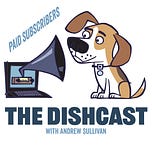Tara Zahra is a writer and academic. She’s currently the Hanna Holborn Gray Professor of East European History at the University of Chicago. This week we discuss her hauntingly relevant book, Against the World: Anti-Globalism and Mass Politics Between the World Wars.
For two clips of our convo — on the starving of Germany during and after WWI, and what Henry Ford and Trump have in common — head to our YouTube page.
Other topics: growing up in the Poconos; her parents’ butcher shop; ballet her first career goal; her undergrad course on fascism that inspired grad school; how the Habsburg Dynasty was the EU before the EU; the golden age of internationalism; cutting off trade and migration during WWI; the Spanish flu; the Russian Revolution; pogroms across Europe; scapegoating Jews over globalization and finance; the humiliation at Versailles; Austria-Hungary chopped up and balkanized; Ellis Island as a detention center; massive inflation after the war; the Klan in the 1920s; Keynes; the Great Depression and rise of fascism; mass deportations in the US; autarky; Hitler linking that self-reliance to political freedom; Lebensraum; anti-Semitism; the Red Scare; the WTO and China; the 2008 crash; Trump’s tariff threats; rare earths; reshoring; fracking and energy independence; MAHA; Elon Musk and Henry Ford; Mars as Musk’s Lebensraum; and the longing for national identity.
Browse the Dishcast archive for an episode you might enjoy (the first 102 are free in their entirety — subscribe to get everything else). Coming up: trans activist Shannon Minter debating trans issues, Scott Anderson on the Iranian Revolution, and Johann Hari turning the tables to interview me. Please send any guest recs, dissents, and other comments to dish@andrewsullivan.com.
From a fan of last week’s pod with Tom Mallon: “I’ve discovered so many great people through the Dishcast — and I’m putting together a reading list based on your interview with Thomas Mallon (whom I had never heard of).”
From a fan of the episode we did two years ago with James Alison:
I am writing to thank you for your work, which has had a significant impact on me. First you came for my politics, then you came for my atheism! Yes, your work opened me to the conservative political viewpoint, having been left of centre since gaining political consciousness in my late teens/early twenties (I’m turning 50 next year, so almost 30 years). Then, I was quite surprised myself to find myself actually entertaining it.
You weren’t the only influence; I stumbled onto Professor Barry Brownstein on Substack, and after reading Hayek’s The Road to Serfdom upon Brownstein’s recommendation, there was no turning back. I’m firmly right of centre now, and you were the one who opened the door.
Well, if that wasn’t shocking enough to me, then you had Fr James Alison on your podcast. I cannot recall what possessed me to listen to that episode of your many enticing and excellent episodes (I’m more of reader than a podcast listener), but listen I did. And WOW! If that didn’t open me up — no, that’s much too genteel; it smashed me open with Fr James’ entirely new conception of Catholicism.
As I wrote to Fr James, I was raised what I would call “tokenistically Catholic.” In other words, I was completely secular except that we were made to go to church on Sundays, and of course more often at Easter and Christmas. But there was no embodiment of Catholicism, unlike what came so through so incredibly powerfully from both you and James in your podcast. I could not then, nor now, identify any difference in my family’s life and the lives of those around me by virtue of us having being Catholic (other than going to church). Moreover, as a young adolescent, I couldn’t reconcile the stories of Jesus caring for the poor and the BMWs in the church car park. So I jettisoned “that whole thing” in my mid-teens.
From my current vantage point, I can see that my religious ... awakening (I’m still grappling to find the right words for what I’ve been experiencing) started with a trickle maybe 15 or so years ago, but in the last year in particular, it’s become a tidal wave. I am engulfed, overtaken. And that podcast with Fr James was pivotal. One part that struck me with particular force, and still does, is when he said, “Reality is actually trying to reach out to you, to open you up to being able to enjoy it more.”
The astonishing thing about podcasts is how they reach people you’ll never know with an intimacy and immediacy hard to find elsewhere. Another fan of the Dishcast has some guest recs:
You continue to keep me coming back by talking to such a wide array of interesting people. You’re in the ranks of Joe Rogan, Bari Weiss, and a few others in terms of interviewing interesting people fairly — mostly fairly ;-). I do think the conversation with Walter Isaacson was quite good, though I think he (like a lot of people) tends to overstate Enlightenment rationality as the progenitor of basically every good thing that figures in the Revolutionary era believed, did, invented, wrote, etc. Deism is a much more nuanced phenomenon than is often recognized.
In view of the themes you’ve been discussing through the years, especially lately, I strongly recommend two interview subjects. First, James Davison Hunter, who teaches at UVA and directs the Institute for Advanced Studies in Culture. He coined the term “culture wars” in the 1990s with his book by the same title. More recently, he has written a really important book on democracy in American entitled Democracy and Solidarity: On the Cultural Roots of America’s Political Crisis. It has been widely discussed, but not as much in more mainstream discussions, so your podcast could do us a great service.
Another author I recommend is the historian Thomas Kidd, who has written about a wide array of historical events and figures, including Ben Franklin and Thomas Jefferson. (Your discussion with Walter Isaacson made me think of him.) Kidd’s Jefferson book, among others, has been widely praised.
Another responds to last week’s column:
It’s obviously great to hear about the ongoing “Crime Reduction Miracle.” But will the precipitous drop in murders affect what I’ve dubbed “The American Slaughter”?
Every year since 1995, and before that, about 5,000 young black males have been murdered in the USA by other young black males. I’ll help with the math: that’s 150,000 dead young black men in 30 years. Chicago alone has racked up about 10,000 dead YBM since 1995. The numbers are shocking — or would be if anyone ever heard them.
Listen to this episode with a 7-day free trial
Subscribe to The Weekly Dish to listen to this post and get 7 days of free access to the full post archives.












